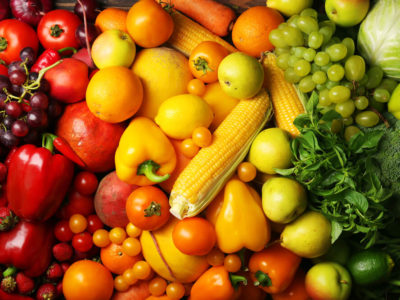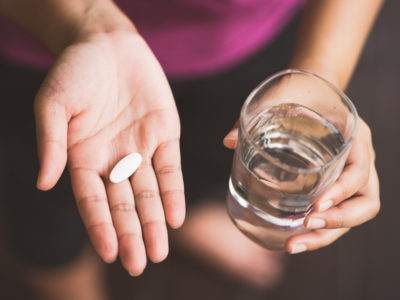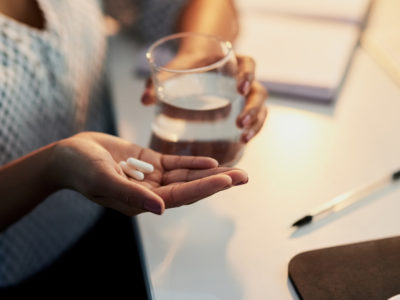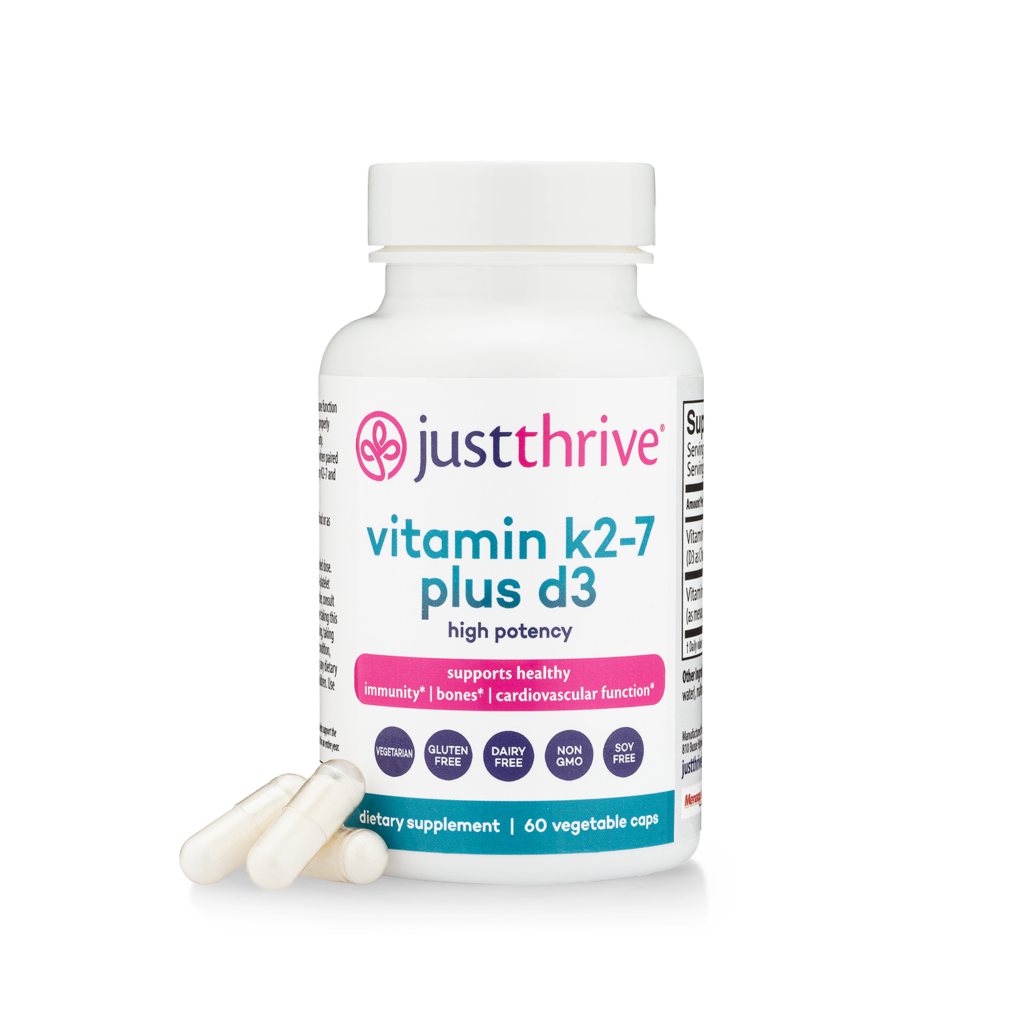Table of Contents[Hide][Show]
Vitamin D: the sunshine vitamin…
You may have heard a lighthearted sun worshiper claim, “I’m loading up on my Vitamin D!”
But is spending time in the sun enough to give your body all the vitamin D it requires? And what happens if it’s overcast or rainy?
Luckily, there are alternative sources for getting vitamin D, including through your dietary choices.
Let’s take a closer look at your body’s vitamin D needs and what foods can help ensure you get enough of this crucial nutrient—even on rainy days.
All About Vitamin D
To function at its best, your body needs a wide variety of nutrients, each doing its own, highly specific job to keep your body healthy and strong.
And vitamins, including vitamin D, are a big part of these nutrients.
Interestingly, despite its importance to your health, there is an ongoing debate about whether or not vitamin D is an “essential nutrient.”
This is due to the medical community’s standard definition of what makes up an essential nutrient.
Because while vitamin D is unquestionably necessary for your health, the definition of an essential nutrient includes that the nutrient in question cannot be produced by the body or produced in adequate quantities.
If you get enough sun—which depends on many factors we’ll discuss later—your body might just be able to produce enough vitamin D in conjunction with the right foods, however, it’s unlikely. Vitamin D is one of the most common nutrient deficiencies.
About 1 billion people worldwide have vitamin D deficiency, [and] approximately 35% of adults in the United States have vitamin D deficiency.
Clevelandclinic.org
Most people need to add extra vitamin D to their diets, through vitamin D-rich foods and/or supplements.
But regardless of whether it’s defined as “essential,” there is no doubt that your body needs vitamin D.
Let’s look at some of the reasons why your body needs vitamin D.
The Benefits of Vitamin D
Vitamin D performs several crucial roles in your body.
But by far, its most important role is to help your body absorb and retain bone-building calcium.
Without an adequate amount of vitamin D, your body is unable to absorb calcium from food or supplements. When your calcium level gets too low, your body attempts to remedy the situation by drawing calcium from your bones. This can lead to soft, weak bones— known as rickets in children and osteomalacia in adults.
Vitamin D also:
- Controls infections
- Reduces inflammation
- Slows down the growth of cancerous cells
- Lowers the risk of developing an autoimmune disorder
- May slow the decline of cognitive health
- May lower the risk of type 2 diabetes
In addition, vitamin D receptors are found in organs and tissues throughout your body. While studies remain ongoing, this does seem to suggest that vitamin D performs more functions than we are currently aware of.
How Much Vitamin D Do You Need?
Your recommended intake of vitamin D varies according to age.
- Newborn through 12 months: 10 micrograms (mcg) per day
- Children 1 year and older: 15 mcg per day
- Adults up to age 70: 15 mcg per day
- Adults age 71 and older: 20 mcg per day
You can see how, if you’re relying solely on sunlight, it becomes difficult to know just how much vitamin D your body is producing.
But your body will know. And if it’s not enough, your body will find a way to tell you.
Let’s look at some of the signs that you’re deficient in vitamin D.
Signs of a Vitamin D Deficiency
Your body will always let you know when you aren’t getting the proper nutrition. The key is knowing what symptoms to look for.
Here are some signs that you may have a vitamin D deficiency.
- Bone pain or aches
- Depression
- Fatigue
- Lack of appetite
- Hair loss
- Pale skin
- Poor sleep
- Muscle weakness
And since this nutrient helps you fight infections, you may also find yourself getting sick more easily or notice that wounds are healing more slowly if/when you’re lacking vitamin D.
Related
Here Comes The Sun: Fighting Vitamin D Deficiency!
Discover how you can ensure you are getting enough vitamin D, plus learn about the other vitamin that works together with D3 for optimal health benefits.
Foods Rich in Vitamin D
Now that you’re more aware of the importance of the sunshine vitamin, let’s look at some of the best foods for vitamin D.
There are two main forms of vitamin D, vitamin D2 and vitamin D3, with the latter being slightly more potent. Although they can both be manufactured and added to food, such as vitamin D-fortified milk, they both occur naturally.
- Vitamin D2 is mostly plant-based
- Vitamin D3 is found in animal products (or produced by your body following sun exposure)
There are some foods that contain both. One example is mushrooms, which contain vitamin D2 but can produce D3 when exposed to UV light.
Carnivore and Pescatarian Foods High In Vitamin D
Along with other meat sources, fatty fish and fish oils are the best sources of naturally occurring vitamin D.
Some of the highest concentrations of vitamin D can be found in these fish and seafood products, which are great options if you’re a pescatarian.
- Cheese
- Cod
- Fish oil, such as cod liver oil
- Herring
- Rainbow trout
- Salmon
- Sardines
- Swordfish
- Tuna fish
If you’re a carnivore, you can also boost your Vitamin D with meat and dairy products, such as these.
- Beef liver
- Eggs
- Margarine and other spreads
- Vitamin D-fortified milk, cheese, yogurt, and other dairy products
Vegetarian and Vegan Foods High In Vitamin D
There are also plenty of delicious vitamin D foods for vegetarians and vegans!
These are the best vitamin D foods if you’re a vegan.
- Mushrooms
- Tofu
As an alternative, these vegan foods are often fortified with vitamin D—but read the label, to be sure.
- Cereal
- Orange juice
- Plant milks, such as almond milk, rice milk, or soy milk
- Vegan yogurt
If you’re a vegetarian, you can also add these vitamin D-rich foods to your diet.
- Cheese
- Cow’s milk (fortified)
- Eggs, especially the yolk
- Yogurt (fortified)
Since these are plant-based foods, the main form of vitamin D present in these foods will be D2.
Related
Benefits of a Plant-Based Diet
Learn the benefits of a plant-based diet—for you, your local farmers, and for the planet—plus what to look for when selecting your produce, and get a bonus recipe at the end of this post.
Other Ways To Get More Vitamin D
Food is a fantastic source of vitamin D. But what are other sources?
Sunshine
For many people, sunshine is the first source that comes to mind when they think of vitamin D. But is it enough?
We’ll start by clarifying that your body doesn’t actually get vitamin D from the sun. Rather, your body produces vitamin D when it’s exposed to the sun.
But does it produce enough vitamin D?
The answer depends on a number of variables:
- Your skin pigmentation (darker skin absorbs less UV light)
- Your geographical location
- Your age (adults over the age of 70 produce less vitamin D)
- How much of your body is exposed to the sun
- How much time you spend in the sun
- The time of year
For example, during the summer months, the sun’s UV rays are stronger and the average person has roughly 25% of their body exposed (face, hands, arms, and neck). In a city such as Miami, you could get enough vitamin D in just 3 minutes of sun exposure.
But in the winter in a city such as Boston, where less of your body is exposed (due to the cold) and the sun’s rays are weaker, you would need almost 2 hours of sunshine to get the same amount of vitamin D.
Sunscreen can also reduce your body’s production of vitamin D, depending on its SPF, how long ago you applied it, and how thick of a layer you applied.
Supplements
Sunshine is inconsistent—and challenging if you work all day. Eating the same food might get repetitive or feel limiting.
In either case, or just based on your personal preference, supplements are an easy-to-take and highly effective source of the vitamin D your body needs.
For starters, you’ll know exactly how much vitamin D you’re consuming. In supplements, you may see the amount listed in International Units (IU). The conversion is simple: 1 mcg is equal to 40 IU.
Based on the recommendations we mentioned above, these would be the proper amounts of vitamin D in IU.
- Newborn through 12 months: 400 IU per day
- Children 1 year and older: 600 IU per day
- Adults up to age 70: 600 IU per day
- Adults age 71 and older: 800 IU per day
Supplements are also easy to take, without any dietary adjustments or rushing outside for your daily sunshine dosage.
However, always read the labels carefully. Look for a supplement that meets your daily vitamin requirements, is shelf-stable (no refrigeration needed), and contains non-GMO, naturally derived vitamin D.
Vitamin K2-7 Plus D3 For for Immune, Heart, Bone, and Cardiovascular Health
We’re huge fans of this vitamin D supplement from Just Thrive. Not only does it meet and even exceed the requirements above, but it’s formulated with D3, the same one your body creates from the sun.
Even more exciting, this supplement also contains vitamin K2. These two vitamins together are nature’s power couple! Both are essential for maintaining a strong immune system, peak energy, and thriving heart and bone health. K2 directs the calcium absorbed by the D3 where it’s needed (like your skeletal structure and teeth)—while keeping calcium out of the places it doesn’t belong (like your arteries and joints)
Just one vegetable daily capsule delivers 200 mcg of naturally-derived K2-7 and 5000 IU of D3, both in their highest potency forms to help you take control of your best health.
Plus, Vitamin K2-7 Plus D3 is backed by Just Thrive’s 100% Bottom of the Bottle, money back guarantee. If for any reason you’re not satisfied, simply request a full refund, at any time, no questions asked.
Final Thoughts
Rain or shine, indoors or out, you need your vitamin D!
Although sunshine is a great source of vitamin D, it’s not always easy to get enough sunshine to produce an adequate amount of vitamin D.
Luckily, there are plenty of healthy, delicious foods that can boost your vitamin D intake (in conjunction with supplementation) and make sure you get enough, regardless of the weather.
Load up your plate with vitamin D-rich foods for a healthy mind and body!
You May Also Like…






